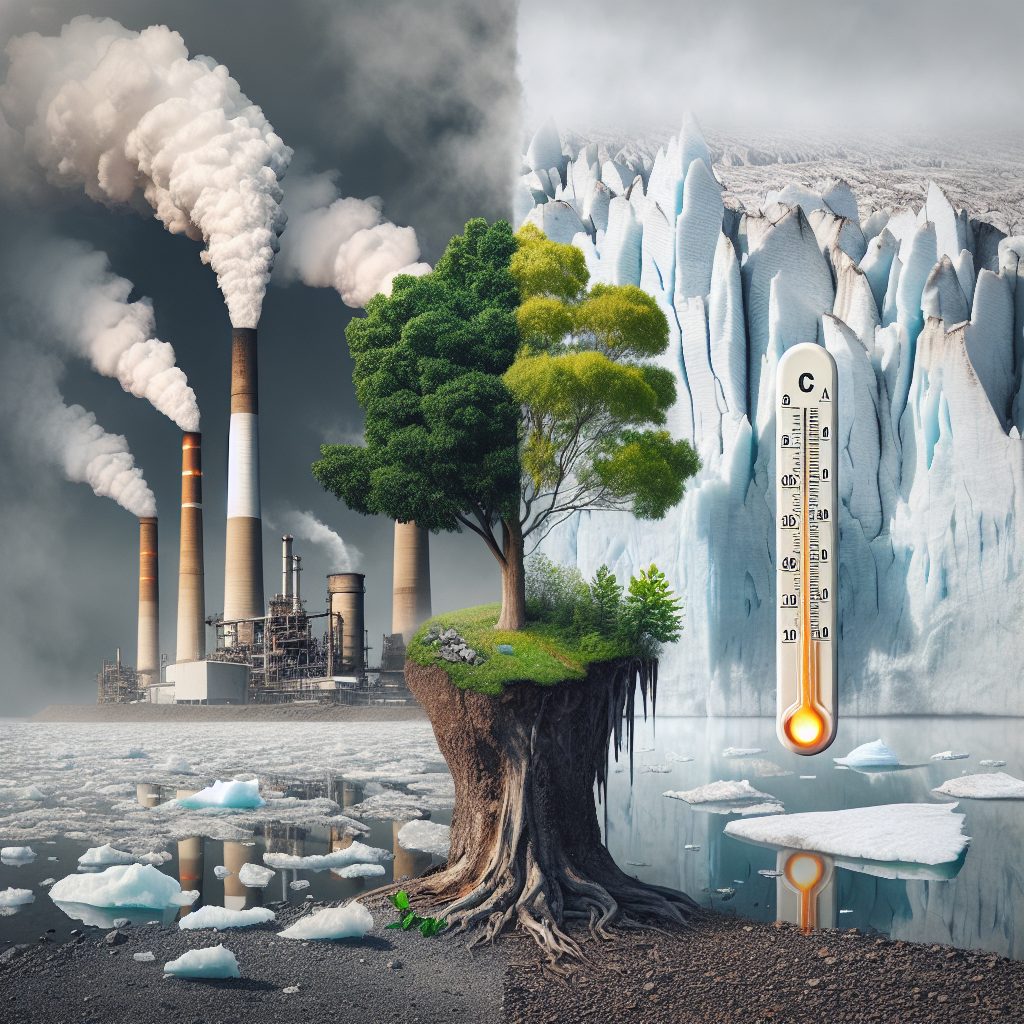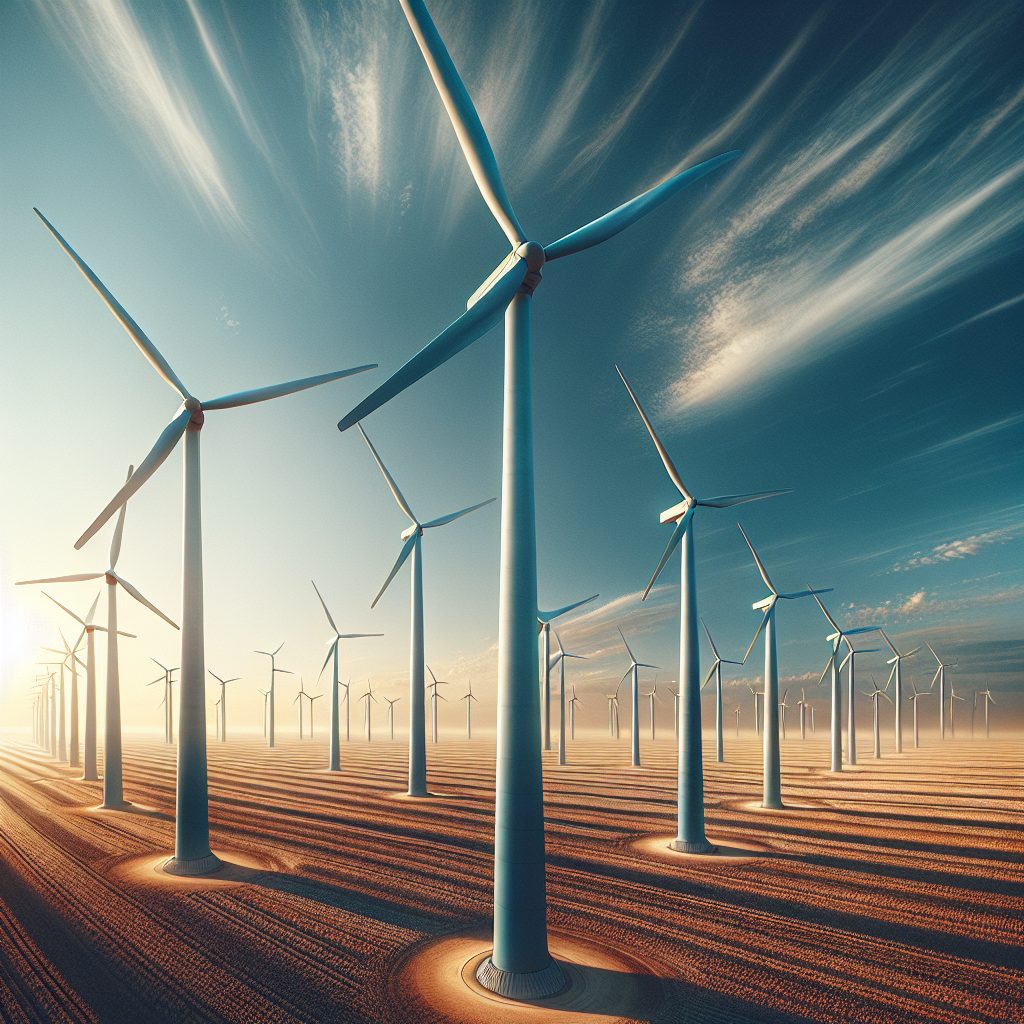
Fossil fuels are non-renewable energy sources like coal, oil, and natural gas that were formed from long dead plants and animals over hundreds of millions of years. They contain combustible chemicals and produce energy when burned, but they also produce carbon dioxide and other air pollutants that have a profound effect on the climate.
The main climate impact of burning fossil fuels is the emission of greenhouse gases. These gases form a layer in the atmosphere that trap solar radiation and warm the earth, creating what is known as the “greenhouse effect”. This, in turn, increases surface temperatures and creates extreme weather conditions and sea-level rise, endangering humans and wildlife alike. Fossil fuel emissions also contain other pollutants such as fine particulate matter and ozone which also contribute to global warming. It is estimated that 85% of total global emissions are from the burning of fossil fuels.
The consequences of our reliance on fossil fuels for energy and transportation are undeniable, but the problem can still be tackled with the correct approach. By taking steps to reduce our collective dependence on fossil fuels and implementing methods to capture and reduce emissions, we stand a chance of mitigating the worst of the effects of climate change. In the coming section of this article, we will look at some key strategies we can take now to reduce our reliance on fossil fuels and the environmental impact they have on the planet.
Key Takeaways
1. The burning of fossil fuels produces greenhouse gas emissions that are major contributors to global climate change.
2. Scientists have established that extreme weather events, sea level rise, and loss of biodiversity are results of global warming due to human-made increases in greenhouse gas in the atmosphere.
3. Fossil fuel energy sources release three primary forms of air pollutants: particulate matter, sulfur dioxide, and nitrogen oxides.
4. The most pressing concern today is the continued use of fossil fuels, resulting in an increase in air pollution and other environmental issues.
5. Alternative energy sources such as wind power, solar power, and hydropower may offer a solution to reduce emissions while providing a renewable source of energy.
What is the Relationship Between Fossil Fuels & Climate Change?
Fossil Fuels & Greenhouse Gas Emissions
Fossil fuels, such as coal, oil, and natural gas, are finite resources created millions of years ago and found buried deep within the Earth’s crust. The combustion of these resources to generate electrical power, fuel motor vehicle engines, and power the pharmaceutical and petrochemical industries is responsible for the creation of carbon dioxide (CO2), nitrous oxide (NO2), and other greenhouse gases that have been linked to climate change. According to the Environmental Protection Agency (EPA), fossil fuels contribute nearly 70 percent of all human-caused greenhouse gas emissions in the United States.
The Impact of Climate Change
The burning of fossil fuels also affects the amount of heat-trapping particles in the atmosphere, leading to an overall rise in global temperatures. This is known as the greenhouse effect, in which the Earth’s atmosphere traps solar radiation to make the planet warmer. Climate change refers to the long-term alteration of the Earth’s weather patterns, including an increase in temperatures, more extreme weather events, and rising sea levels. A warmer world can mean more issues with drought, floods, strong storms, rising sea levels, and an increased risk of heat-related illnesses like heat exhaustion and heat stroke.
The Role of Renewable Energy Sources
Due to the environmental impacts associated with the burning of fossil fuels, many nations are shifting away from their reliance on these finite resources. Increasingly, they are turning to renewable energy sources like wind, solar, hydro, and geothermal energy to reduce dependence on fossil fuels and curb their emissions. Renewable energy sources are still used only a fraction of the time compared to finite resources like coal and gas, yet climate activists are hopeful that increasing investments in renewable energy infrastructure will lead to a more sustainable energy system, and ultimately, a healthier planet.
Tips for Reducing Dependence on Fossil Fuels
- Make the switch to renewable energy sources whenever you can.
- Carpool, bike, or take public transportation to reduce the number of fossil-fuel burning vehicles on the road.
- Choose energy-efficient appliances and lightbulbs.
- Reduce household energy use by unplugging electronics when they are not in use and turning down the thermostat.
- Choose products that are made from recycled or sustainably sourced materials.
- Take part in local cleanups and participate in demonstrations and campaigns related to climate change.
FAQ
What is the link between Fossil Fuels and Climate Change?
Fossil fuels are the largest source of heat-trapping greenhouses gases when burned. These greenhouse gases trap heat in the atmosphere and lead to climate change. As global temperatures rise, the deleterious effects on our planet and our environment are seen in many parts of the world.
What are the consequences of burning fossil fuels?
In addition to creating greenhouse gases that cause climate change, burning fossil fuels for energy contributes to air, land, and water pollution on our planet. Fossil fuels also release a number of dangerous toxic elements that can be dangerous to our health.
Are renewable energy sources better than fossil fuels?
Renewable sources of energy such as solar, wind and hydro are better for the environment than burning fossil fuels. Renewable sources of energy do not release greenhouses gases and therefore will not contribute to climate change.
What are the advantages of using renewable resources?
Renewable resources of energy are better for the environment because they do not contribute to the greenhouse effect, therefore they do not contribute to the climate change. In addition, renewable sources of energy are more efficient and cost effective than fossil fuels.
How can I reduce my impact on the environment by reducing the use of fossil fuels?
There are a number of steps that individuals can take to reduce their impact on the environment by reducing the use of fossil fuels. Making an effort to drive less, use public transportation when available, and use energy efficient appliances and lighting are all great ways to reduce your contribution to climate change.
What role does the government play in this issue?
Governments have a responsibility to create policy to reduce emissions from fossil fuels and encourage the use of renewable energy sources. Many countries around the world have set or are currently in the process of setting ambitious emissions reduction targets.
What government policies can be put in place to reduce the use of fossil fuels?
To reduce the use of fossil fuels, governments can introduce policies such as carbon taxes, subsidies for renewable energy sources, and regulations that require the large scale use of renewable energy sources. Governments can also set emissions targets and have them legally enforceable.
What measures can be undertaken by businesses to reduce their impact on the environment?
Businesses can reduce their impact on the environment by using renewable energy sources such as solar, wind, and hydro, as well as implementing energy efficient measures such as using LED lighting, insulation, and efficient HVAC systems. They can also reduce their transportation-related emissions by utilizing electric or hybrid vehicles.
How can individuals help to reduce climate change?
Individuals can reduce climate change by reducing their energy consumption. This can be done by insulating their homes and using more energy efficient appliances, lighting and other electronic devices. Additionally, individuals can also reduce their carbon footprint by eating a diet with less meat, using public transportation, and making an effort to purchase more local or sustainable products.
What is the role of the private sector in tackling the climate crisis?
The private sector has a large role to play in addressing the climate crisis. Businesses can reduce their emissions by switching to renewable energy sources as well as investing in green technology and infrastructure. Companies can also invest in research and development to come up with new solutions to the climate crisis.
Final Thought
Conclusion
Fossil fuels have been a large contributor to climate change and global warming. The continued use of fossil fuels is detrimental to our environment and to our health. Governments, businesses and individuals must all take action to reduce the use of fossil fuels and switch to renewable sources of energy. This is the only way we can truly address the climate crisis and protect our planet for future generations.
There are many actions that can be taken to reduce the use of fossil fuels and to help address the climate crisis. Governments need to create policies to reduce emissions from fossil fuels and help promote the use of renewable energy sources. Businesses need to invest in green technology and renewable energy sources and individuals must reduce their energy consumption and purchase sustainable products.



